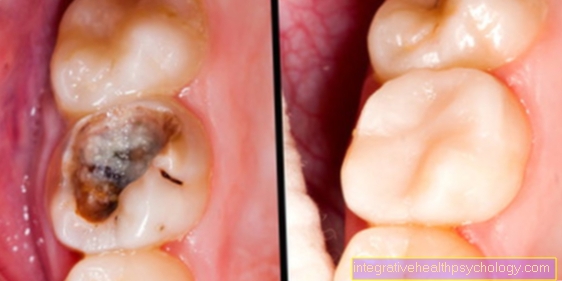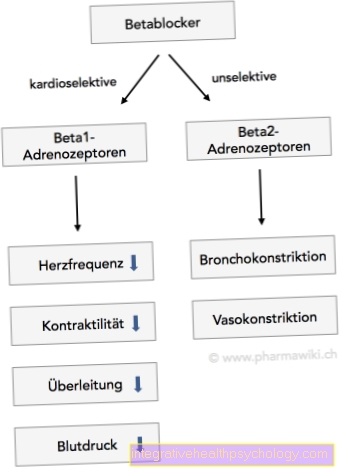Avalox®
Dosage and intake
In most cases Avalox® is taken orally as a tablet. As a rule, Avalox® is taken at a dose of 400mg once a day. It can be taken independently of meals. The duration of use of Avalox® varies depending on the disease being treated. In the event of an acute outbreak of chronic bronchitis, Avalox® should be taken between five and ten days. In the case of pneumonia, the recommended duration of use is ten days; in the case of inflammation of the sinuses, seven days. If oral therapy with tablets is not possible, Avalox® can also be given directly via an infusion in the case of severe infections.

Before taking it is important to inform the attending physician about any existing Drug allergies as well as over everyone else medication taken at the same time to inform Interactions and avoid allergic reactions. It is also important that Avalox® is taken for as long as it was prescribed by the attending physician.
While you are taking Avalox®, it is important to tell other doctors, for example the dentist, that you are currently taking the drug.
Furthermore, the attending physician must have an existing pregnancy, Current Breastfeeding of an infant or an existing desire to have children, in order to adequately advise the patient about the advantages and disadvantages of taking Avalox® under these circumstances.
In the event of an Avalox® overdose, the patient's stomach should be pumped out and an adequate supply of fluids ensured at the same time. Because of the Side effects from Avalox® to the QT interval the patient should be monitored using an ECG. It also makes sense to the patient Activated carbon so that the systemic concentration of Avalox® can be reduced. If a very high dose of Avalox® has already penetrated into the bloodstream, a Hemodialysis or Peritoneal dialysis be useful.
Side effects
As with all medications, it can also occur when taking Avalox® Side effects come. However, there are no side effects that are very commonly observed.
Frequently (between 1 and 10 percent of patients) can complaints in the Gastrointestinal tract come like:
- nausea (Nausea)
- Vomit (Emesis)
- diarrhea (Diarrhea) or
- stomach pain
In rare cases, the so-called QT syndrome can also occur, a life-threatening heart disease, which, however, can also be triggered by some other undesirable side effects of medicinal products. The QT syndrome usually only occurs when the patient suffers from a potassium level that is too low (hypokalaemia), which is why it makes sense to determine the patient's potassium level or to ask him about classic symptoms before starting therapy with Avalox® begins.
To the very rare (less than 1 in 10,000), but the more serious side effects include various forms of Liver damage. Therefore it can be severe and fulminant within the scope of therapy with Avalox® Inflammation of the liver (hepatitis) come up to complete liver failure can range. In addition to the side effects on the liver, taking Avalox® can also cause Lyell syndrome (toxic epidermal necrolysis), a blistered detachment of the top layer of skin, similar to a severe burn.
Other very rare side effects from taking Avalox® are Problems with the annoy of the hands and feet (irreversible peripheral neuropathy) as well as the Inflammation from Tendons (Tendonitis) and as a result even the Torn tendons (Tendon rupture).
The following can also occur during therapy with Avalox®:
- pseudomembranous colitis
- Inflammation of the colon
- psychotic reactions such as
- Steven Johnson Syndrome
These side effects are extremely rare, but prompted doctors to use Avalox® just still to usewhen others few side effects, Antibiotics didn't work or cannot be used for other reasons.
Please also read our article on this Antibiotic side effects
Contraindications
Avalox® should not be given to anyone who has a history of Hypersensitivity compared to Avalox®'s other similar antibiotics. In addition, it is recommended that Avalox® does not With nonsteroidal anti-inflammatory drugs (NSAIDS) like aspirin, Ibuprofen or Diclofenacas this increases the risk of side effects central nervous system are increased.
Avalox® is during the pregnancy contraindicated, since the active ingredients contained in it reach the unborn child can be transferred. This can lead to a Miscarriage or different Birth defects come to the child.
In addition, Avalox® should also Not during the Lactation be taken as Avalox® can also be passed on to the child through breast milk. Avalox® should only be used under strict control of the Blood sugar levels be used in diabetics, as the intake of Avalox® and the associated metabolic processes can cause the blood sugar level to fluctuate more than usual. Furthermore, Avalox® contraindicated at Children about side effects on those still under development muscle- and Tendon apparatus to avoid.
All patients with pre-damaged heart, especially the patients who have problems with the Stimulus transmission have in heart or am QT syndrome If possible, should not be treated with Avalox® in order to avoid worsening of the symptoms in the heart.
In patients with Myasthenia Gravis Avalox® can lead to an exacerbation of the symptoms, so that Avalox® is also contraindicated here. Are with the patient already Problems with the Muscle vision known or suffers from it epilepsy, Avalox® should not be used.
Drug interactions
The administration of Avalox® together with other medicinal products that affect the QT interval extend (for example Beta blockers, Erythromycin or tricyclic antidepressants), should be avoided, as this can lead to QT syndrome.















.jpg)













